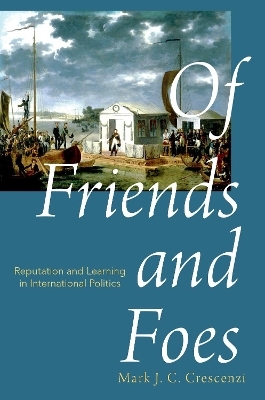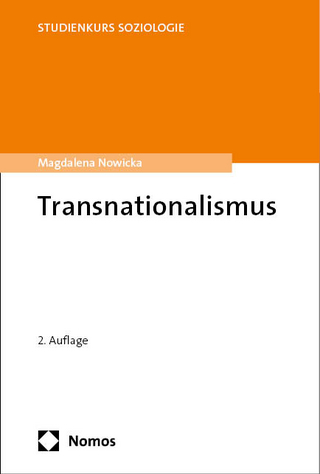
Of Friends and Foes
Oxford University Press Inc (Verlag)
978-0-19-060953-5 (ISBN)
How do countries form reputations? Do these reputations affect interstate politics in the global arena? Reputations abound in world politics, but we know little about how state reputations form and how they evolve over time. We frequently use words like trust, credibility, resolve, integrity, risk, known commodity, and brand, to name a few, overlapping with reputation like a Venn diagram. As a result, the concept of reputation often gets stretched or diluted, weakening our ability to ascertain its role in cooperation and conflict.
In this book, Crescenzi develops a theory of reputation dynamics to help identify when reputations form in ways that affect world politics, both in the realms of international conflict and cooperation. A reputation for honoring one's obligations in a treaty, for example, can make a state a more attractive ally. A reputation for war and conflict can trigger more of the same, leading to a cycle of violence that exacerbates security challenges. While these processes of cooperation and conflict seem distinct, they are linked by a common use of the information held in each state's reputation. In each case, states use reputational information in an attempt to resolve the uncertainty they face when crafting foreign policy decisions.
With this theory in place, Crescenzi uses a blend of historical and empirical analysis to convince the reader that reputations do indeed matter in world politics. Moreover, we are able to identify patterns of reputation's influence in international relations. He demonstrates that over time and across the globe, reputations for conflict exacerbate crises while reputations for cooperation and reliability make future cooperation more likely.
Mark Crescenzi, Bowman and Gordon Gray Professor of Political Science, earned his B.A. from the University of California at Irvine (1993) and his Ph.D. from the University of Illinois at Urbana-Champaign (2000). He teaches courses in international relations, including international conflict, conflict resolution, and national security. His current research focuses on the role of reputation in world politics; the strategic dynamics of adaptation between governments and opposition groups; sources of credibility in international mediation; and the link between international economic interdependence and conflict.
List of Figures
List of Tables
Preface
1. Introduction
PART ONE A THEORY OF REPUTATION AND ITS PL ACE IN
WORLD POLITICS
2. The Dynamics of Reputation
3. How Reputation Matters in International Relations
PART TWO EVIDENCE: THE INFLUENCE OF REPUTATION ON
COOPERATION AND CONFLICT
4. Reputation, Conflict, and War
5. Reputation, Learning, and the Onset of Alliances
6. Implications and Conclusions
Bibliography
Index
| Erscheinungsdatum | 12.06.2018 |
|---|---|
| Verlagsort | New York |
| Sprache | englisch |
| Maße | 231 x 152 mm |
| Gewicht | 272 g |
| Themenwelt | Sozialwissenschaften ► Politik / Verwaltung ► Europäische / Internationale Politik |
| Sozialwissenschaften ► Politik / Verwaltung ► Vergleichende Politikwissenschaften | |
| ISBN-10 | 0-19-060953-2 / 0190609532 |
| ISBN-13 | 978-0-19-060953-5 / 9780190609535 |
| Zustand | Neuware |
| Haben Sie eine Frage zum Produkt? |
aus dem Bereich


